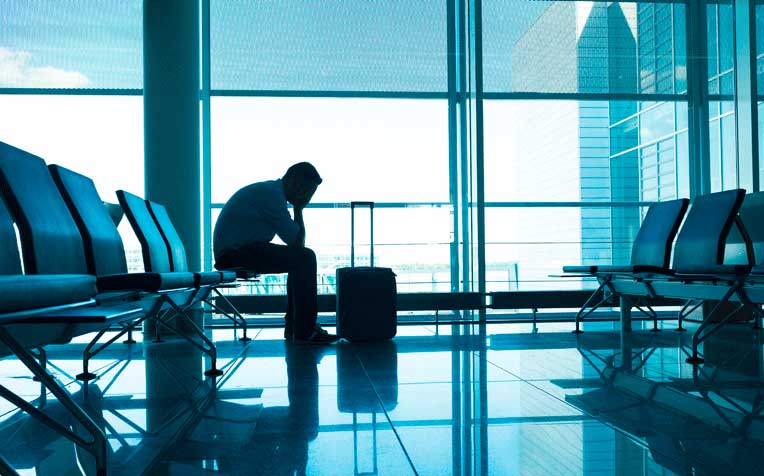HealthXchange will NEVER ask you to transfer money over a call. If in doubt, call the 24/7 ScamShield helpline at 1799, or visit the ScamShield website at www.scamshield.gov.sg.
Flying Risks and Prevention Tips: Jet Lag

Jet lag can be made better by exposing yourself to sunlight.
Continued
Jet Lag
Jet lag happens when you quickly cross multiple time zones, leaving no time for your body’s internal clock, called circadian rhythm, to adjust. Once jet lag sets in, you may feel sleepy during the day yet find it impossible to sleep at night. You may also get hunger pangs at odd times of the day.
If you’re a frequent flyer, jet lag can prevent you from getting the sleep you need. Over time, sleep deprivation increases your risk for obesity, cardiovascular disease, gastrointestinal disorders, and even some cancers, says Dr Limin Wijaya, Senior Consultant at the Travel Clinic, and Department of Infectious Diseases, Singapore General Hospital (SGH), a member of the SingHealth group.
How to prevent jet lag
You can prevent jet lag with some advance planning. A few days before a trip heading westwards, adjust your body’s internal clock by progressively pushing back your bedtime. If you’re flying eastwards, you may go to bed an hour earlier than you would normally for a few nights. The idea is to ease into your future time zone.
Drink water: During the flight, drink plenty of water. Avoid drinking caffeinated beverages and alcohol as they can disrupt your sleep and cause dehydration.
Take melatonin: Melatonin is a hormone that is naturally produced by your body to induce sleep. You can also take melatonin pills before going to bed in your new time zone, to trick your body into thinking it’s time to sleep.
Do check with your doctor first if it’s safe for you to take melatonin pills, as they can interact with certain medications, including blood-thinning drugs, immunosuppressants, diabetic drugs and birth control pills.
Get some sun and exercise: If you arrive at your destination during daytime, spend some time in the sun as the sun rays will help adjust your circadian rhythm.
Read on for more health hazards that affect frequent flyers and tips on how to prevent them.
Ref: Q15
Contributed by
Public Events
Get the Health Buddy App
© 2025 SingHealth Group. All Rights Reserved.














 Get it on Google Play
Get it on Google Play